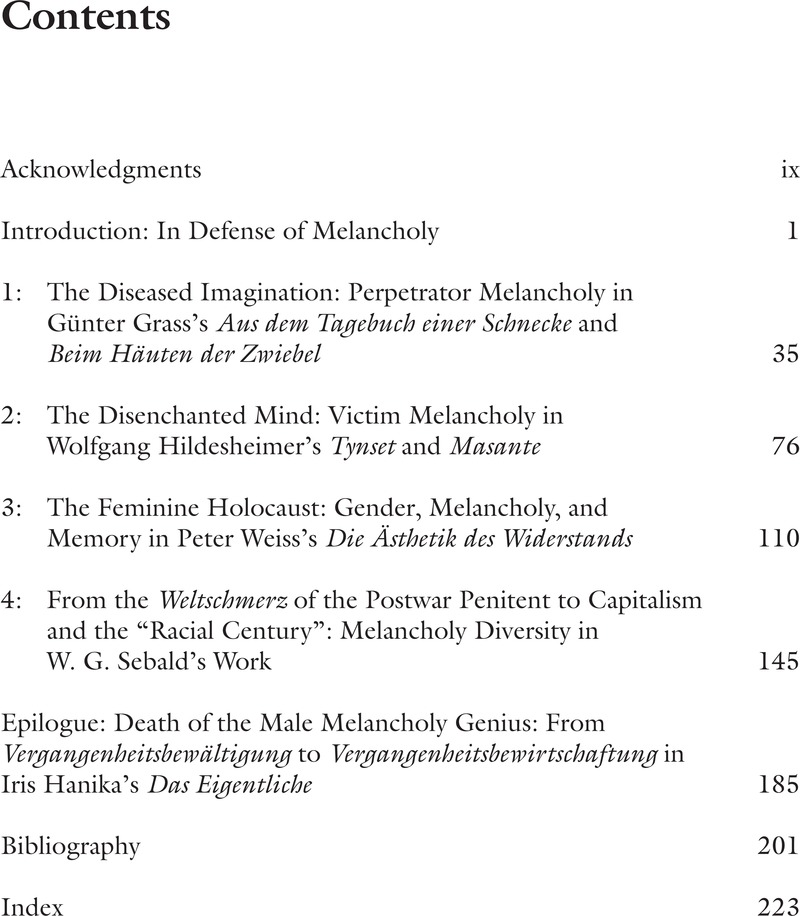Book contents
- Frontmatter
- Dedication
- Contents
- Acknowledgments
- Introduction: In Defense of Melancholy
- 1 The Diseased Imagination: Perpetrator Melancholy in Günter Grass's Aus dem Tagebuch einer Schnecke and Beim Häuten der Zwiebel
- 2 The Disenchanted Mind: Victim Melancholy in Wolfgang Hildesheimer's Tynset and Masante
- 3 The Feminine Holocaust: Gender, Melancholy, and Memory in Peter Weiss's Die Ästhetik des Widerstands
- 4 From the Weltschmerz of the Postwar Penitent to Capitalism and the “Racial Century”: Melancholy Diversity in W. G. Sebald's Work
- Epilogue: Death of the Male Melancholy Genius: From Vergangenheitsbewältigung to Vergangenheitsbewirtschaftung in Iris Hanika's Das Eigentliche
- Bibliography
- Index
Contents
Published online by Cambridge University Press: 05 April 2014
- Frontmatter
- Dedication
- Contents
- Acknowledgments
- Introduction: In Defense of Melancholy
- 1 The Diseased Imagination: Perpetrator Melancholy in Günter Grass's Aus dem Tagebuch einer Schnecke and Beim Häuten der Zwiebel
- 2 The Disenchanted Mind: Victim Melancholy in Wolfgang Hildesheimer's Tynset and Masante
- 3 The Feminine Holocaust: Gender, Melancholy, and Memory in Peter Weiss's Die Ästhetik des Widerstands
- 4 From the Weltschmerz of the Postwar Penitent to Capitalism and the “Racial Century”: Melancholy Diversity in W. G. Sebald's Work
- Epilogue: Death of the Male Melancholy Genius: From Vergangenheitsbewältigung to Vergangenheitsbewirtschaftung in Iris Hanika's Das Eigentliche
- Bibliography
- Index
Summary

- Type
- Chapter
- Information
- Born under AuschwitzMelancholy Traditions in Postwar German Literature, pp. vii - viiiPublisher: Boydell & BrewerPrint publication year: 2014

